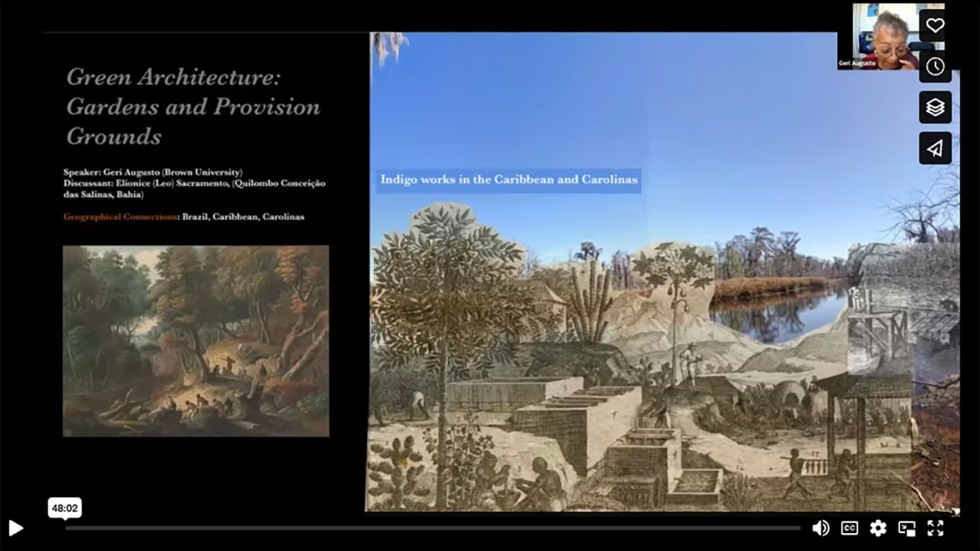Geri Augusto was featured in a virtual symposium to kickoff a longer-term project titled, "Domestic Worldmaking by the Enslaved", which focuses on a collective story-telling typology and integration of diverse work related to the agency and innovations within the domestic practices of individuals enslaved during the Transatlantic Slave Trade. This project, supported by the MIT-based Global Architectural History Teaching Collaborative, aims to create different histories and narratives for the study and practice of architecture and urban planning.
Told by Geri Augusto, "Green Architectures: Gardens and Provision Grounds," explores how the enslaved produced their own food, creating provision grounds outside their domestic dwellings or on marginal lands as a form of resistance. Plants nurtured by the enslaved in bondage, limbo and freedom are explored as epistemic objects and offer a window into their integrated knowledge of botanical, culinary, medicinal, agricultural, spiritual worlds and green landscapes of their own making.
